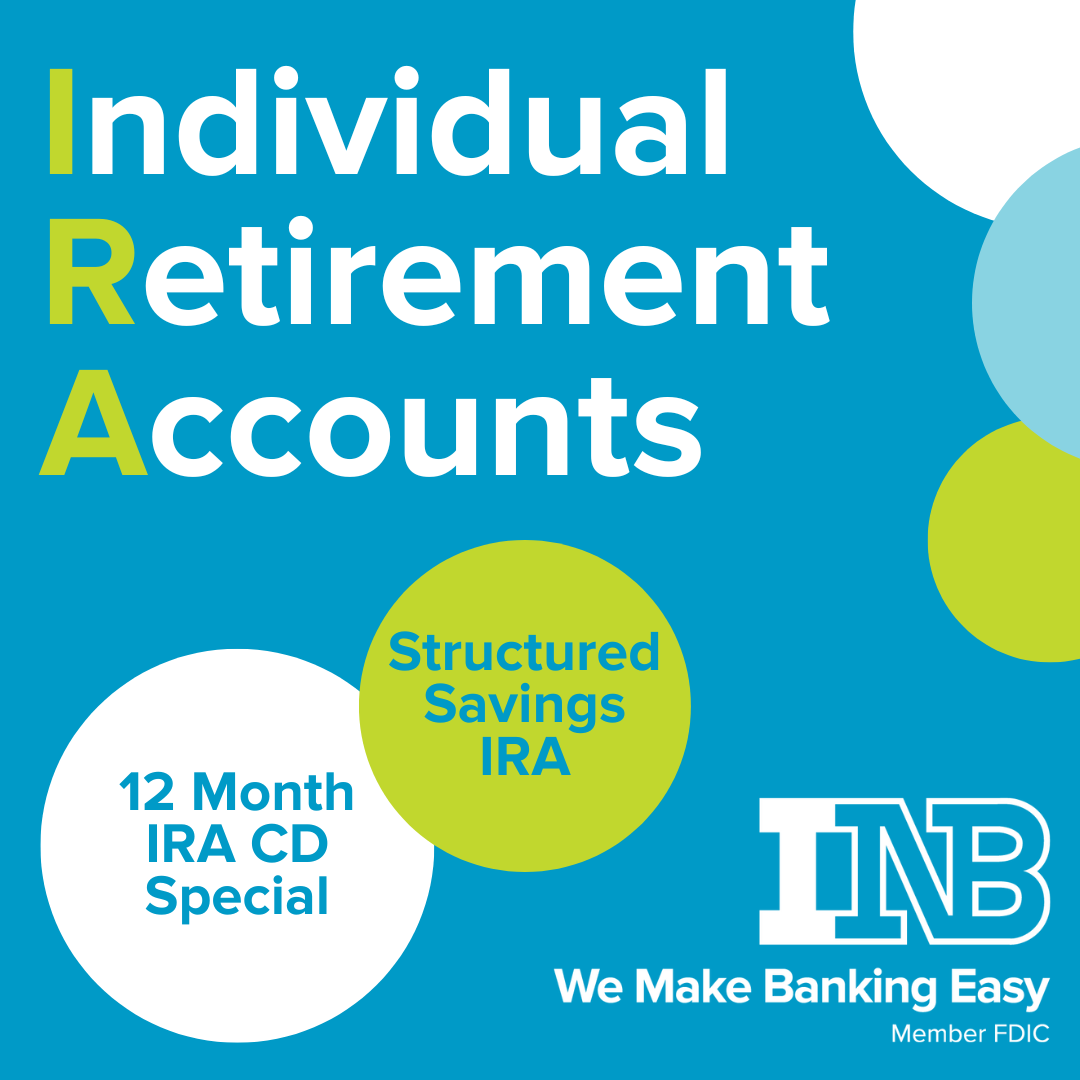A good rule of thumb is to save 15% of your income toward your future retirement — starting as soon as you can. But when you’re shooting for this amount, an employer-sponsored 401(k) or pension may not be enough.
Did you know that you can also save for retirement on your own? It may make sense to diversify your retirement savings by opening an IRA.

“One of the greatest investments you can make in yourself is to save for your future,” says Amanda Donley, Branch Manager at INB Chatham. “An IRA can diversify your retirement income sources, reducing reliance on Social Security or employer-sponsored plans, and potentially enhancing financial stability in retirement.”
What’s an IRA?
IRA stands for Individual Retirement Account and is a savings account designed to help you save for retirement. Depending on the type you open, money that is invested in an IRA is either tax-free or tax-deferred.
Anyone who earns an income is eligible to open an IRA, even a minor child with a part-time job or a stay-at-home parent whose spouse earns money. This also includes anyone who already has a 401(k) retirement account open through their employer.
“Unlike employer-sponsored retirement accounts, IRAs are not tied to your employer. This means you can keep your IRA regardless of changes in your employer, ensuring continuity in your retirement savings,” Amanda says.
You can set up an IRA with a bank or other financial institution, life insurance company, mutual fund, or stockbroker. And when you’re considering how much to save, the IRS does set a limit each year; in 2024, you can contribute up to $7,000 a year if you're under 50, or $8,000 if you're 50 or older.
What are the different kinds of IRAs?
There are multiple types of IRAs, but the most popular ones include:
- Traditional IRA: Contributions to a Traditional IRA are often tax-deductible, meaning you can deduct the amount you contribute from your taxable income that year. And the money in the account grows tax-deferred, which means you don’t pay taxes on earnings until you withdraw them.
- Roth IRA: Contributions to a Roth IRA are made with after-tax dollars — meaning they are not tax-deductible — and contributions can be withdrawn at any time without penalty. The huge benefits to a Roth IRA is that the money in the account grows tax-free, and qualified withdrawals in retirement are also tax-free.
What are the benefits of an IRA?
- Tax Advantages: Certainly, the primary benefit of IRAs is tax advantages! Traditional IRAs offer tax-deferred growth and potential tax deductions, while Roth IRAs offer tax-free growth and tax-free withdrawals in retirement.
- Investment Options: IRAs typically offer a wide range of investment options, including stocks, bonds, mutual funds, ETFs, and more.
- Compound Growth: The tax-deferred or tax-free growth in IRAs allows your investments to compound more efficiently, potentially leading to larger account balances over time compared to taxable accounts.
- Estate Planning: Roth IRAs are especially beneficial for estate planning, because withdrawals are not required and they can be passed on to heirs.
For more details about IRA contribution limits, tax deductions, and more, visit the IRS web page here.
How can INB help with retirement savings?
- INB offers a structured savings IRA, which is ideal for anyone who prefers principal protection and a higher yield account. As a forced savings strategy, this account provides the opportunity to save via required periodic transfer contributions and is a great option as a Roth (pre-paid tax) savings.
- INB also has an IRA CD, which is perfect for anyone nearing retirement or considering rolling over other qualified retirement plans where principal protection is a priority, but higher yields are preferred.
"By considering all the benefits, it's clear that opening an IRA can be a strategic and effective way to enhance your retirement savings, providing flexibility, tax advantages, and a wide range of investment options,” Amanda shares.
When you’re ready to add an IRA to your retirement savings plan, give us a call at 877-771-2316!